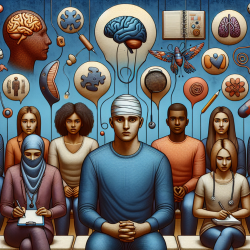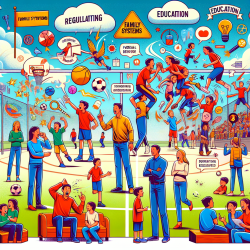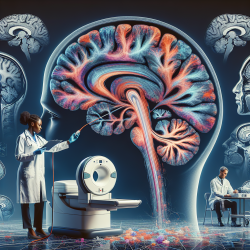Concussions are a common form of traumatic brain injury that can significantly impact the lives of individuals, especially those in the college-age group. Recent research published in the International Journal of Environmental Research and Public Health sheds light on how concussions affect college-aged individuals with co-occurring anxiety. This blog post aims to help practitioners improve their skills by implementing the outcomes of this research or encouraging further exploration into this critical area.
The Study Overview
The study titled The Impact of a Recent Concussion on College-Aged Individuals with Co-Occurring Anxiety: A Qualitative Investigation, conducted qualitative interviews with 17 college-aged individuals who had experienced a concussion within the last 10 weeks and had at least mild anxiety. The research identified five major themes that describe the impact of concussion on their lives:
- Disruption to Daily Activities: Participants reported reduced participation in hobbies and physical activities due to symptoms like light sensitivity and cognitive disturbances.
- Disruptions in Relationships: Social engagement was significantly affected, with participants feeling dismissed by others or experiencing stigma.
- Challenges in School/Work: Cognitive or sleep disturbances led to difficulties in academic and work environments.
- Changes in Self-Perception: Individuals felt unlike themselves, often describing feelings of dullness or irritability.
- Finding Silver Linings: Some participants found increased motivation or new perspectives following their injury.
Implications for Practice
The findings from this study highlight several areas where practitioners can focus their efforts to improve outcomes for college-aged individuals with concussions and anxiety:
- Psychoeducation: Educate patients about the typical course of concussion recovery and emphasize the importance of gradual re-engagement in daily activities. This can help reduce fear-avoidance behaviors that may delay recovery.
- Cognitive Behavioral Strategies: Incorporate techniques such as cognitive restructuring to help patients manage anxiety and modify unhelpful thoughts about their injury.
- Mood and Identity Support: Address changes in self-perception by fostering a supportive environment where patients can express their feelings and fears without judgment.
- Social Support Systems: Encourage patients to maintain social connections and seek support from peers, family, or support groups to mitigate feelings of isolation.
The Importance of Further Research
This study opens the door for further research into tailored interventions for this vulnerable population. Practitioners are encouraged to explore additional qualitative studies that focus on specific therapeutic approaches that can be integrated into treatment plans. Understanding the unique challenges faced by college-aged individuals with concussions can lead to more effective psychosocial interventions, ultimately improving recovery outcomes.
If you're interested in delving deeper into this topic, you can read the original research paper by following this link: The Impact of a Recent Concussion on College-Aged Individuals with Co-Occurring Anxiety: A Qualitative Investigation.










